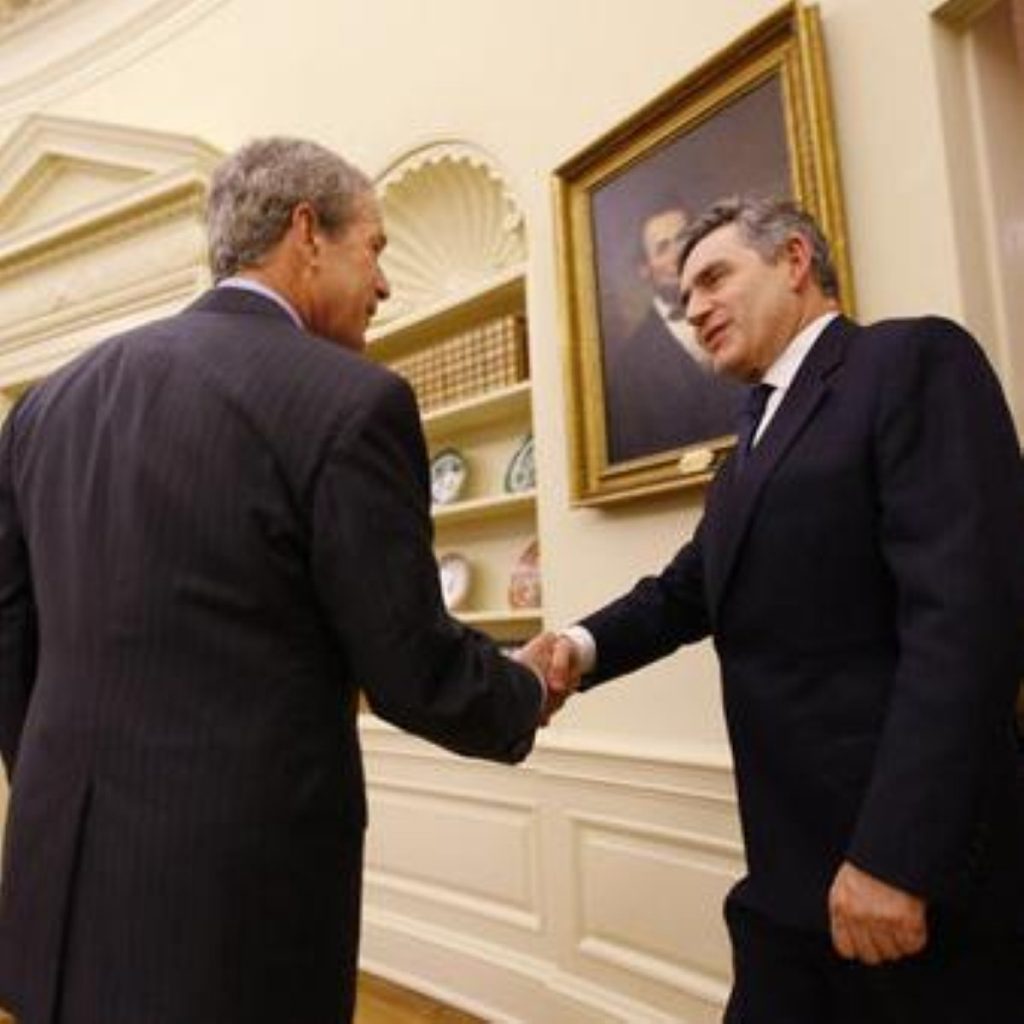Comment: Brown – The world statesman?
“The principles I announced last week are now being adopted across the world economies,” Alistair Darling told MPs yesterday, to subdued but genuine cheers from the benches behind him.
He had good reason to say so. After a briefing from Gordon Brown, Germany, France and 13 other nations agreed a massive cash injection to secure loans. Across the Atlantic, Treasury secretary Henry Paulson is investigating the feasibility of backing up loans between banks in north America. Paul Krugman, the American professor who just won the Nobel economics prize, said: “Mr Brown and Alistair Darling have defined the character of the worldwide rescue effort, with other wealthy nations playing catch-up.”
It’s a far call from Mr Brown’s image as a kind of international joke, an image he all-but nurtured for the duration of the last year. Once the Brown administration began, we all but forgot the manic globe-hopping of Tony Blair, whose desperation to be at the heart of international affairs became evident when microphones picked up his private conversation with president Bush during the Israel-Hezbollah war. Bush told him Condoleezza Rice was going out to the region. “Well…it’s only if I mean… you know,” Mr Blair replied. “If she’s got a…, or if she needs the ground prepared as it were… Because obviously if she goes out, she’s got to succeed, if it were, whereas I can go out and just talk.”
That desperate need to get out there, to get stuck into things, was plastered all over the prime minister’s face during every international crisis Labour experienced in its first decade in power. He didn’t succeed in everything – that second UN resolution on Iraq and US engagement with the Middle East peace process come to mind – but he appeared competent, was well-liked overseas and he did significantly elevate the UK’s international profile.


Mr Brown’s approach could not have been more different. Despite a keen interest in international development, he never hid his casual indifference to international affairs. Relations with America – the only other country in the world he has ever really demonstrated any interest in – went from uncertain to schizophrenic. Mr Brown’s first trip to Washington proved quite popular with voters; his calm, unimpressed demeanour contrasting sharply – and a little proudly – with Blair’s perceived sycophancy. But by the time of president Bush’s last visit to the UK the prime minister had reverted back to British type, endlessly parroting Washington’s lines and praising his American counterpart rather too much for anyone’s liking.
His relations with other allies proved equally problematic. The decision to sign the Lisbon treaty after all the other signatories had left provoked despair among his allies and a kind of gleeful horror among Eurosceptic adversaries back home. He opted for a similar PR nightmare when it came to greeting the Olympic torch outside Downing Street, meeting the torch so as not to offend the Chinese, but refusing to touch it so that he didn’t upset human rights activists either. Not only did it please no-one, but Britain’s international reputation edged a little closer to becoming a laughing stock. This status was quite visible in the body language of Nicolas Sarkozy when he met Brown last weekend. The French president imposed himself on the prime minister, with one hand on his back, and the other on the back of his arm, offering the French press every opportunity necessary to conclude the Frenchman was the dominant partner.
How things change. Suddenly, all of Europe wants a personal briefing from Mr Brown before it decides on what to do. And when it does decide what to do, it does exactly what Mr Brown suggested. If Vince Cable, the Lib Dem economics spokesman, was right to say Mr Brown had morphed from Stalin to Mr Bean, it appears he is now changing into John Kennedy.
Mr Brown is on home turf. He is not lying when he professes to have lobbied for an international regulatory system since well before the present crisis. He is the world leader with the most impressive knowledge of financial and economic systems, and other world leaders do appear to fall silent when Mr Brown begins talking. On a personal level, the prime minister simply performs better in a crisis. When times are serious, Mr Brown’s dour persona becomes an asset. His droning voice, and its sometimes impenetrable technical content, appears authoritative and reassuring. World leaders need to calm world markets, and Mr Brown’s voice is an appropriate one to get behind.
But this isn’t just because of his comfort with the subject matter. It’s also because the current crisis has given Mr Brown a purpose, and with purpose comes confidence. For over a year people have asked exactly what Labour is in power for. The honest answer was that many people in Whitehall simply weren’t sure. There was good reason to think Mr Brown himself had forgotten. Now, everything is happening for a reason.
Mr Brown cannot afford to get too cocky about his new status. There is no guarantee his recent success will translate into electoral victory. The plan could easily fail in the long term, however positively the markets have responded so far. Also, Britons have a habit of not giving a monkeys how their leader is seen overseas. Foreign policy issues in general struggle to figure on the electorate’s radar. Everything is still to play for, and politics – both domestic and international – has rarely been so volatile and eventful.
But lets be fair. When Mr Brown and Mr Darling presented their plan to the press last Wednesday, the prime minister told journalists the package was the most advanced being proposed across the globe, and that other countries would soon follow it. As things stand, he is being proved correct. The world is following. He deserves a little Churchillian moment.
Ian Dunt











